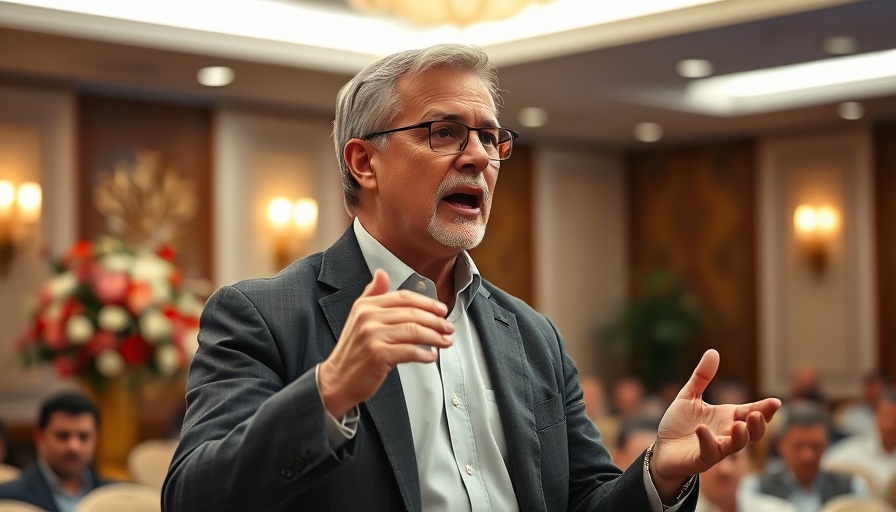
The Alarming Rise of Obesity in India
In a revealing address, Union Health Minister JP Nadda has highlighted the steep rise in obesity across India, quoting a startling statistic from the ICMR-India Diabetes (INDIAB) study: urban obesity rates surged by 39.6% from 2008 to 2020, while rural areas reported a 23.1% increase. This increase is not just a number; it foreshadows a grim reality where, by 2050, up to one-third of India's population could be categorized as obese.
The Call for Action: “Stop Obesity by Eating Safe and Healthy”
This announcement coincided with the launch of the FSSAI campaign, “Stop Obesity by Eating Safe and Healthy,” which took place at the National Institute of Mental Health and Neuro-Sciences (NIMHANS) in Bengaluru. Nadda's emphasis that food safety should evolve into a continuous habit rather than a fleeting initiative underscores the campaign’s objective—a movement geared toward the nutrition and well-being of every Indian.
Unpacking the Causes: Urban Eating Habits
Nadda pointed out that unhealthy diets, particularly prevalent in urban locales, are one of the driving forces behind escalating obesity rates. Children's susceptibility to harmful food habits due to aggressive marketing and advertising strategies makes it imperative to instill healthier culinary choices from an early age. The call to reduce everyday oil intake by 10% alongside salt reduction is not a mere suggestion, but a necessary lifestyle adjustment to counteract these rising rates.
Reviving Traditional Indian Foods: A Sustainable Approach
As part of this initiative, the revival of traditional Indian foods, especially millets, is being hailed as a pathway to better health. These grains offer nutritional density and are integral to cultural heritage, making them not just healthy alternatives but also a means of reconnecting with sustainable agricultural practices. By promoting such foods, we can harness both health benefits and an appreciation for local culinary traditions.
Collective Responsibility: Building a Healthy Future
Union Health Secretary Punya Salila Srivastava echoed Nadda’s sentiments, emphasizing the need for continuous education and awareness of food safety issues. The journey toward combating non-communicable diseases (NCDs) hinges on collective action and individual choices. Everyone has a role to play; whether it's reducing unhealthy consumption or advocating for informed food choices to foster community awareness, every small step can lead to a healthier nation.
Practical Tips for Healthier Eating
Adopting healthy eating habits doesn’t have to be overwhelming. A few practical insights include:
- Plan Your Meals: Create a balanced meal plan incorporating whole foods like fruits, vegetables, grains, and proteins.
- Stay Hydrated: Ensure adequate water intake and consider it as a substitute for sugary beverages.
- Cook at Home: Preparing meals at home not only helps control ingredients but also fosters better eating environments.
- Promote Local Produce: Incorporate seasonal crops into your diet, supporting local farmers while enriching your nutrition.
Taking Action Today for Tomorrow’s Health
As we delve deeper into the implications of obesity, it’s essential for everyone—especially young adults and families—to prioritize their health. The path forward is a community effort, driven by awareness and informed choices that go beyond personal well-being to encompass a national mission. Your participation in this campaign isn’t just beneficial for you and your family; it contributes to elevating national health standards.
Join the movement to stop obesity by adopting healthier eating habits today!
 Add Row
Add Row  Add
Add 




 Add Row
Add Row  Add
Add 

Write A Comment